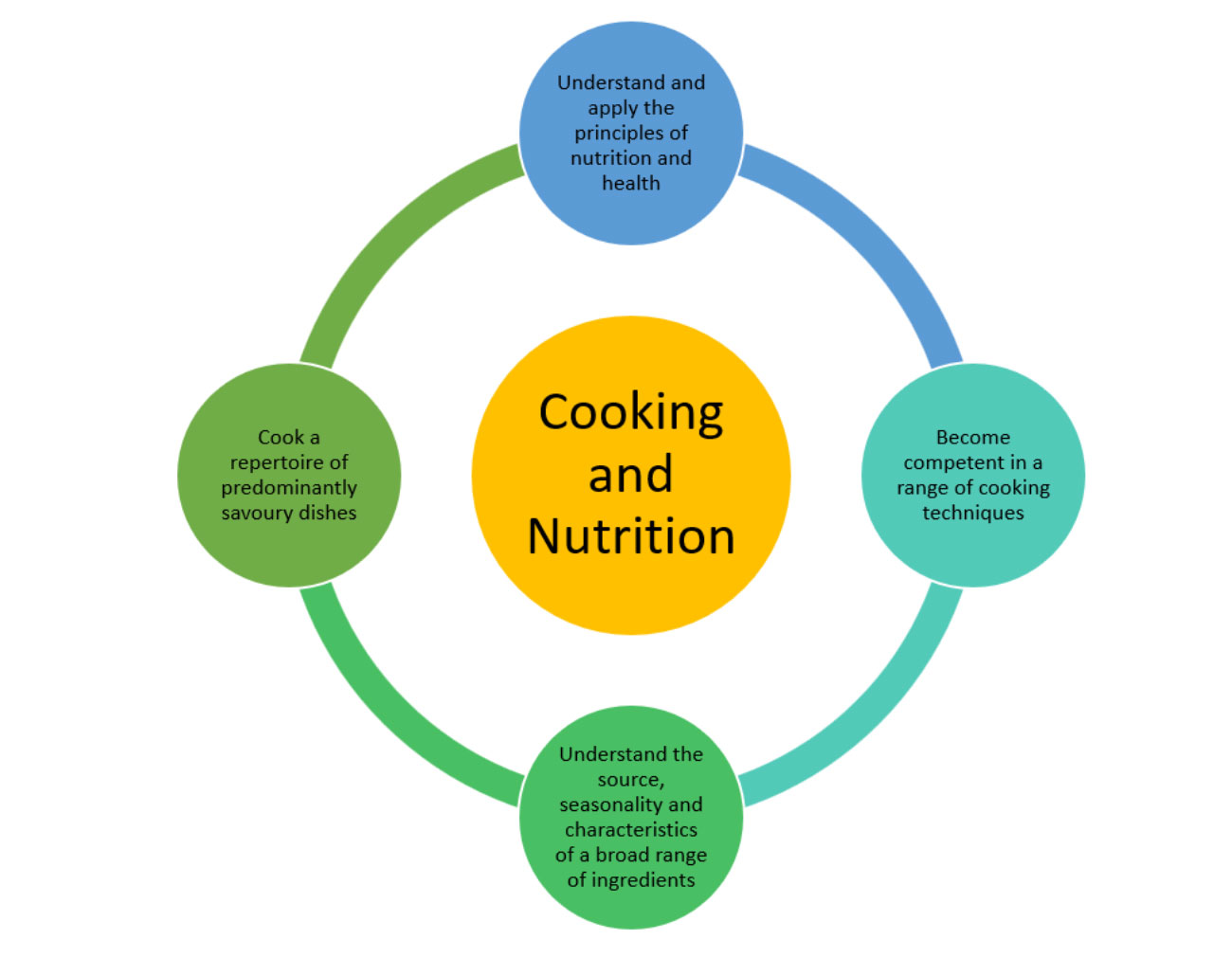DT – Cooking & Nutrition
“Cooking is all about people. Food is maybe the only universal thing that really has the power to bring everyone together. No matter what culture, everywhere around the world, people eat together.” Guy Fieri
Our curriculum has been developed to enable students to engage in a range of practical skills and to have experience of cooking with a diverse range of ingredients. Cooking and Nutrition aims to instil a love of cooking in our students, aiming to open a door to one of the great expressions of human creativity. The curriculum looks to provide students with the necessary knowledge to prepare and cook a variety of dishes and demonstrate a range of skills. Students will have the opportunity to express their creativity at the same time as developing time management skills within a food environment.
Cooking and Nutrition lessons aim to build sufficient knowledge to enable students to understand and apply the principles of nutrition and health, cook a repertoire of predominantly savoury dishes, so that they are able to feed themselves and others a healthy and varied diet. Students are taught to become competent in a range of cooking techniques e.g. selecting and preparing ingredients, using utensils and electrical equipment and applying heat in different ways. The range of skills we use helps students to have an awareness of taste, texture and smell to decide how to season dishes and combine ingredients. The curriculum allows students to adapt recipes alongside understanding the source, seasonality and characteristics of a broad range of ingredients. Learning how to cook is a crucial life skill, our curriculum enables our students to feed themselves and others affordably, now and in later life.




